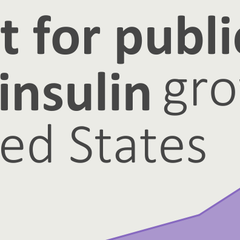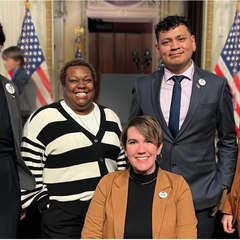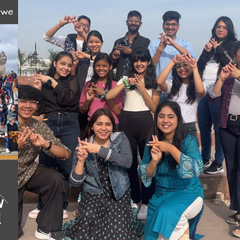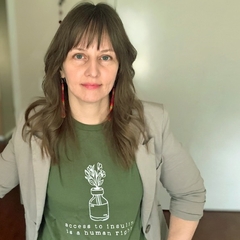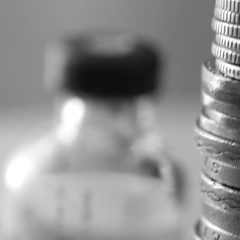
Promised Price Cuts Not Cutting It: There is No $35 Price Cap on Insulin
11 Jan 2024, 5:16 p.m. in #insulin4all USA, News & Statements by T1International
Newspaper headlines across America in January of 2024 have been blaring some incredible news: $35 insulin!
The #insulin4all movement has had some major victories lately. For example, Medicare beneficiaries can access $35 copays for some insulins. The list price of insulin went down for nine insulins. Over half of the states in the USA have passed some form of insulin copay cap. These victories were hard fought by #insulin4all advocates over the past decade.
But we’re not celebrating the much heralded $35 insulin cap for all. Because it’s not true.
Unfortunately, insulin remains too expensive for too many people living with diabetes across the United States. Put simply: the touted “$35 insulin caps” by headlines just don’t exist. What the media and politicians are talking about are copay cards, insulin savings cards, and patient assistance programs – manufacturer-sponsored cost-sharing programs. These programs are not new. They have been around for years. And yet, one in four patients with diabetes still rations insulin due to cost.
Manufacturer-sponsored cost-sharing programs are not an answer to the insulin price crisis. They have a lot of different issues that make them hard for patients to access. These programs vary wildly, and change all the time, putting patients at risk when they change terms or cancel their offerings altogether.
The programs can be onerous and challenging for prescribers and pharmacists to use. Sometimes extensive paperwork requires the time and attention of health professionals, or computer systems at the pharmacy counter cannot run the coupons. Additionally, manufacturers can collect any information they want about patients who use them, making them available for direct-to-patient drug advertising (which, yes, is still legal in the USA). LillyCares, NovoCare, and Sanofi Patient Connection applications all have the applicant sign away their right to privacy.
To make matters worse, reliance on coupons, savings cards, and patient assistance programs can circumvent efforts to make more cost-effective generic or biosimilar drugs more available. This is in art because these programs often transition patients to name brand, newer, and more expensive and still patented insulins, a practice called “product-hopping". Coupons have been found to increase the purchase of name-brand drugs over generics by over 60% and increase sales to newer, name-brand drugs.
Rather than celebrating “solutions” that still keep power in the hands of Big Pharma, we need legislation that ensures prices are cut and stay low, and that there is truly equitable insulin access for all.
So many of us are scrambling to afford insulin as new deductibles reset and reeling at the news of Levemir’s discontinuation. Celebrating $35 insulins for all patients is irresponsible and dangerous while so many continue to pay full price without insurance.
Are you struggling with the costs of insulin and needs support? We have compiled a list of resources that we hope might support you.
For more information, see our Policy Playbook.




